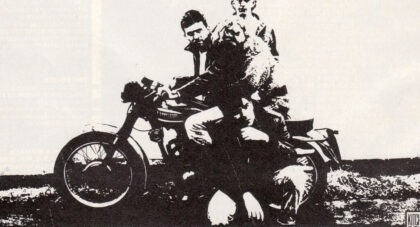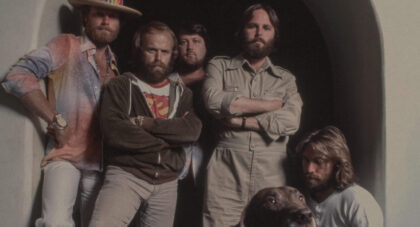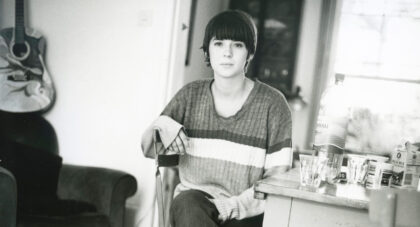My friend Jeremy lives in Harlem; I live 3,000 miles away. As such we do not see one another all that often; and when we do it's mostly centered around when his band, Roadside Graves, is out West touring or I'm in New York City. But somehow, when we do get together, the conversation, after several rounds of drinks, ultimately turns to Deadwood; the great, defunct, show that its creator David Milch, for various speculative reasons, decided to cut short. During one of these pow-wows we decided it would be interesting to delve into what it is about this anachronistic show that, in spite of its its brief run, captured the imagination of so many. More than 'just a western,' Deadwood and its characters, for good or bad, stuck in your craw. I now leave the floor to Jeremy. - AD
____________________________________________________________________________________
When I first decided to write this piece on Deadwood, it seemed like an excellent idea. I'd written for AD about things I loved before---Kristofferson, Roger Miller, so why not write a piece about my favorite TV show since Miami Vice. And then I froze. Complete writer's block. I couldn't bring myself to do it. Too scary….not only because I love it so much, but because I'm not sure I fully understand it. To write passionately about something you don't understand is to walk the line between charlatan and mystic. Either way it requires a certain degree of comfort with one's own foolishness.
Shortly thereafter, my heart got broken by a mysterious and beautiful girl and there was no denying my own foolishness. I decided to write the piece.
I don't want to summarize the plot, because you, reader, may have seen it. Or if you haven't seen it, then I want you to be surprised. I want you to suffer and struggle through the labyrinthine narrative just like I had to. And I don't want to overly analyze it, in spite of its complex philosophical and historical elements, because those kinds of exercises, in my mind, happen best on a front porch over bourbon with friends, when our minds and tongues get loose and maybe there's even a full moon and strange women lurking about.
So I write this, high on Matcha green tea, one gloomy Harlem morning, to the usual soundtrack of dogs fighting in the alleyway…and what I want to talk about is the feel of Deadwood, I want to poke around in the murky relationship between the visceral and the social- for Deadwood is as much a story of mud, blood, diarrhea, abortions, plague, eating, fucking, fighting, and even fleeting moments of sweetness and sympathy, as it is a deep and critical look at capitalism, violence, racism, addiction, immigration, and nation formation, among other things.
What is the show about? I don't know. It tells stories and asks questions about the ways in which people respond to the changing conditions around them….how they position themselves individually, and how they organize collectively, in response to the dominant values of the society they live in. In this case, that would be gold on the community level (what creator David Milch refers to as the community's 'organizing principle') and manifest destiny and nationhood on the national level. The show examines how the characters deal with the fact that the positions they choose (or are forced to take) often contradict their own values. It asks: how do we act authentically in the face of hypocrisy forced upon us by circumstances beyond our control?
But what's key here is that all this psychic tension manifests itself in mundane cataclysms and fiascoes: a boy is trampled by a runaway horse, a man is tarred, a drunk woman shits herself, an eyeball is gouged, a man cheats on his wife, one addict falls off the wagon while another climbs on, one man blows his own head off with a shotgun, another jerks off onto the sheriff's horse. Most importantly, perhaps, these tensions come to light in the show's dense and poetic monologues and dialogues. It is through the medium of a dark, crude, and imaginative language that the characters make sense of their lives, and struggle to express this meaning to others. It is how they plot their actions and justify their behavior to themselves at the end of the day. How do we explain to ourselves what we've done such that we may sleep at night? By what logic? In what tongue?
MP3: Wild Bill :: Go To Hell (spoken word)
Most episodes end at the day's decline. The drunks stagger home or flop and die in the mud; the builders lay their hammers down and ponder; the gamblers gather up their sweeps or crumbs and seek out whores or a ditch to sleep in; a woman weeps before the grave of a loved one; pigs eat the day's corpses; a drunk and her only pal sing a lullaby to an orphan. The show often closes with Al Swearengen thinking it all over, out loud, analyzing and strategizing in some profound monologue while being fellated or scrubbing a bloodstain from the floor, before the screen cuts to black and some sad, sweet and quirky tune by the likes of Mississippi John Hurt or Michael Hurley starts to play as the credits roll. And it's just this moment that expresses so eloquently the emotional weight of the show: a person in the final moments of the day, be they wretched or tender, seeking to find the dignity and hope of survival we all need such that we may finally get to sleep for the night, just to wake up and do it all again the next day…for as Jane puts it "Everyday takes figuring out all over again how to fucking live."
MP3: Mississippi John Hurt :: Farther Along
MP3: Michael Hurley :: Hog of The Forsaken
---------------------
Only the good shit. Aquarium Drunkard is powered by its patrons. Keep the servers humming and help us continue doing it by pledging your support.
To continue reading, become a member or log in.


